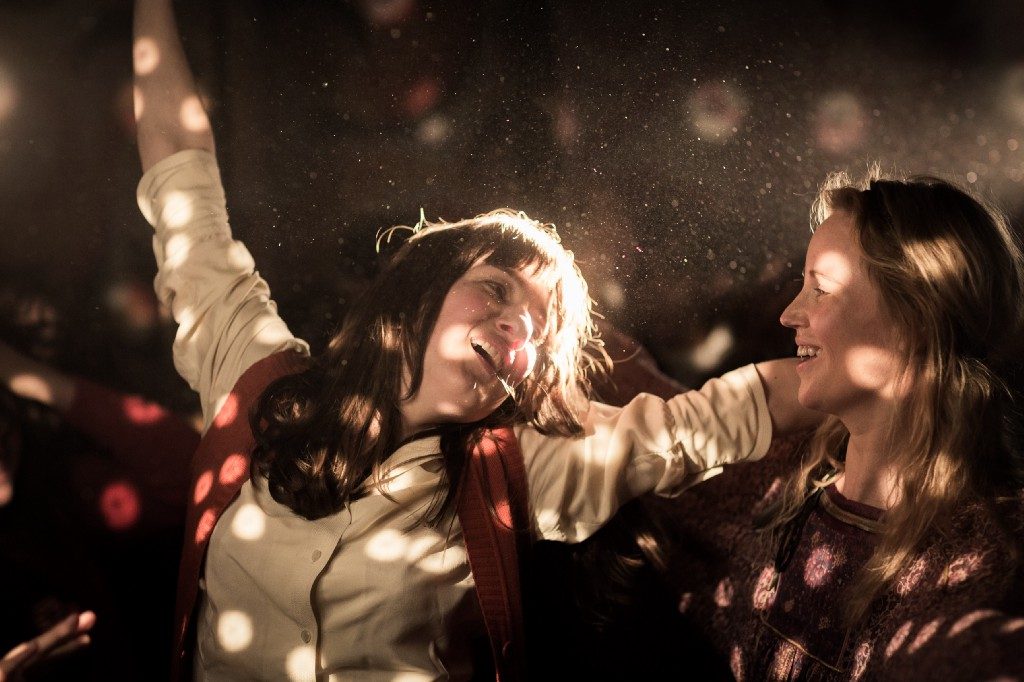Petra Volpe’s feature debut, “Dreamland,” was nominated for four Swiss film awards and played both the festival and theatrical circuit.
“The Divine Order” will premiere at the 2017 Tribeca Film Festival on April 21.
W&H: Describe the film for us in your own words.
PV: “The Divine Order” tells the story of a young housewife and mother in rural 1971 Switzerland. She realizes that the private is political and starts to fight for women’s right to vote. It’s a look back into a shameful chapter of Switzerland’s history — but it also shows the importance of civil courage, which makes the film very timely.
W&H: What drew you to this story?
PV: That the women in Switzerland got to right to vote so late, and that they had to fight for it over 100 years. This fact has been swept under the rug and isn’t talked about much in history lessons. This is so typical of women’s history, which is so often untold.
I made this movie because I wanted to honor all the women who fought for so long and so hard. And by looking back at history, I also found an opportunity to show what still has to be done in order to achieve gender equality.
W&H: What do you want people to think about when they are leaving the theater?
PV: I want them to be moved by the injustice, but also feel encouraged to fight for freedom and justice. It’s a movie about civil courage — and we need this today more than ever.
W&H: What was the biggest challenge in making the film?
PV: The topic is so important to me; as a woman, feminist, and political person, it is so personal. I was scared to fail, and worried that the film wouldn’t do proper justice to all the women who fought.
My goal was not to give a history lesson, but to make a sensual, emotional movie that makes people understand how existential it was to get the right to vote.
The second challenge was the balance of humor and drama. It was very important to me to approach the story with a sense of humor, as it opens people’s hearts for more painful aspects of the story.
W&H: How did you get your film funded? Share some insights into how you got the film made.
PV: We have a lot of federal funding in Switzerland. It was not difficult to gain funding for this movie — the juries saw the importance of its topic.
Unfortunately, there is a large, unjustifiable imbalance in Swiss federal funding. Men get 70 percent of all funds. This has attracted national attention, and we are fighting to achieve more equality. Sexism is still everywhere.
W&H: What does it mean for you to have your film play at Tribeca?
PV: New York is my absolutely favorite city — I fell madly in love with it when I came here for the first time 26 years ago, fresh from a small, boring Swiss village. In fact, I was so overwhelmed that I ended up in NYU’s emergency room with a Class-A panic attack. Nevertheless, it was the first time that I could be myself, and that was such a thrilling feeling.
Back then, I never could have imagined that I would make films. To have an international premiere at the Tribeca Film Festival is such a great honor. I’ve attended the festival many times as a guest and had lots of great and inspiring moments.
I’m also married to a Brooklynite, so I’m thrilled to share this experience with all of my New York friends and family.
W&H: What’s the best and worst advice you’ve received?
PV: Best advice: Writing is re-writing. It sounds banal, but professionalizing my writing process has improved my general quality of life a lot. I don’t fall in such despair anymore when I write — I just re-write and re-write and re-write. I still believe that a good screenplay is crucial for a good film — you can’t fix it later. You have to fix it in the screenplay.
Worst advice: Not to fly too high because then you might fall deep. This mentality is very Swiss and Protestant — it’s just fear of failure. But falling and failing is important.
W&H: What advice do you have for other female directors?
PV: To trust and value their own voices. To never stop being curious. To want to fly high without fearing the fall. To live their life intensely — it is from one’s own life experience where the best material comes from.
W&H: Name your favorite woman-directed film and why.
PV: “The Taste of Others” by Agnès Jaoui. The film has a perfect balance of humor and drama. It’s tender, funny, and deeply moves me because it shows how vulnerable people are when it comes to love and desire.
W&H: There have been significant conversations over the last couple of years about increasing the amount of opportunities for women directors yet the numbers have not increased. Are you optimistic about the possibilities for change? Share any thoughts you might have.
PV: I’m a member of the Film Fatales, who do amazing work, and I find it extremely inspiring and encouraging to meet all of my women colleagues regularly and exchange our knowledge. I’m also a member of the Pro Quote Regie in Germany, where we directors fight for a quota concerning funding, as well as job assignments for television.
Yes, some change can be seen — at least there is a greater awareness now. But it’s a frustratingly slow process. The sexism in our society is so deep and persistent because it’s about power and money. For this to change, we would need a much more profound shift in society. That starts with education. For this film, I did a lot of Q&A’s with teenagers, and that felt really meaningful.







